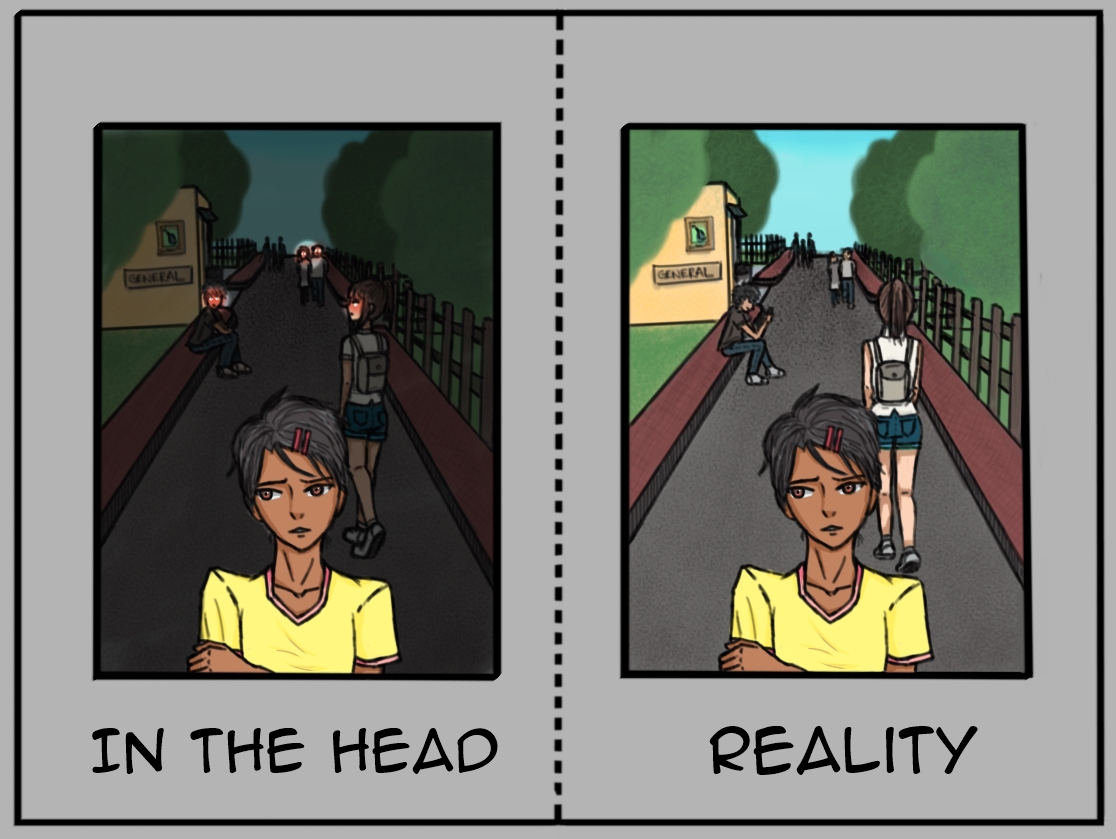50 Fascinating Psychology Facts About Humans you should know
![100 Psychology Facts About Human Behaviour [2022] | Leverage Edu](https://leverageedublog.s3.ap-south-1.amazonaws.com/blog/wp-content/uploads/2021/01/13211728/Psychology-Facts.png)
pic source:google
Psychology is the study of the human mind and behavior, and it reveals some truly intriguing insights about us as individuals and as a species. In this blog post, we will explore 50 psychology facts about humans that will leave you amazed and enlightened. From the way we perceive the world to our social behaviors and cognitive processes, these facts provide a glimpse into the complexities of human nature. Let's delve into the fascinating world of psychology!
1. Smiling is Contagious
Did you know that seeing someone smile activates the same brain regions as when you smile? Smiles are contagious, and when you smile at others, you are likely to receive a smile in return.
2. The Power of Music
Music has the remarkable ability to influence emotions. Listening to upbeat music can enhance mood and productivity, while slower music can promote relaxation and reduce stress.
3. Multitasking Myth
Contrary to popular belief, multitasking isn't an efficient way to work. Our brains are wired to focus on one task at a time, and attempting to do multiple things simultaneously can lead to decreased productivity.
4. The Zeigarnik Effect
Unfinished tasks tend to stay in our minds, causing mental tension until we complete them. This psychological phenomenon is known as the Zeigarnik Effect.
5. Memory Tricks: Chunking
To remember complex information, our brain uses a technique called chunking, where it groups information into smaller, more manageable units.
6. Dopamine and Rewards
The neurotransmitter dopamine plays a significant role in our brain's reward system, motivating us to seek pleasurable experiences and reinforcing certain behaviors.
7. The Impact of Color
Colors can influence our emotions and behavior. For instance, blue is associated with calmness and productivity, while red can evoke strong emotions and increase appetite.
8. The Halo Effect
The Halo Effect refers to our tendency to form an overall positive impression of someone based on one specific positive trait or characteristic.
9. Cognitive Dissonance
When our beliefs or attitudes conflict with our actions, we experience cognitive dissonance, leading us to rationalize our behavior to reduce discomfort.
10. Priming
Priming is the subconscious influence of previously encountered information on our current thoughts and actions. External cues can shape our behavior without us even realizing it.
11. The Cocktail Party Effect
In noisy environments, our brains can selectively focus on a single conversation, even while other conversations are happening around us.
12. Nature vs. Nurture
The debate over whether genetics (nature) or environment and experiences (nurture) have a stronger influence on human development continues to intrigue psychologists.
13. The Placebo Effect
Believing in the effectiveness of a treatment, even if it's a placebo, can lead to real physiological changes and improvement in symptoms.
14. The Power of Body Language
Nonverbal cues, such as body language and facial expressions, play a crucial role in communication and can convey more meaning than words alone.
15. Cognitive Biases
Our brains use shortcuts to process information, leading to cognitive biases that affect our decision-making, perception, and judgments.
16. The Bystander Effect
In emergencies, individuals are less likely to offer help when others are present, assuming someone else will take responsibility. This is known as the Bystander Effect.
17. The Pygmalion Effect
Higher expectations can lead to improved performance. The Pygmalion Effect suggests that when people are expected to do well, they often rise to meet those expectations.
18. Selective Attention
Our brains filter out irrelevant information to focus on what's important, a phenomenon called selective attention.
19. The Power of Persuasion
Psychological principles, such as social proof and scarcity, can be used in persuasion techniques to influence people's decisions and behaviors.
20. The Recency Effect
In memory, we tend to better recall the most recent information we encounter.
21. The Illusion of Transparency
We tend to overestimate how much others can perceive our emotions and thoughts, often believing our internal states are more visible than they actually are.
22. False Memory
Our memories are not as reliable as we might think. False memories can be created, leading us to remember events that never actually occurred.
23. The Placebo Sleep Effect
Simply believing you had a good night's sleep, even if you didn't, can improve cognitive performance and mood the next day.
24. Mirror Neurons
Mirror neurons in the brain activate both when we perform an action and when we observe someone else performing the same action, contributing to empathy and imitation.
25. The Power of Touch
Physical touch releases oxytocin, the "bonding hormone," promoting feelings of trust and connection between individuals.
26. FOMO (Fear of Missing Out)
The fear of missing out on exciting or rewarding experiences, often heightened by social media, can lead to feelings of anxiety and dissatisfaction.
27. The Spotlight Effect
We tend to believe that others pay more attention to us than they actually do, leading to self-consciousness in social situations.

28. Emotional Contagion
Emotions are contagious, and we can pick up on the feelings of those around us, even if we're not directly interacting with them.
29. The Zeigarnik Effect in To-Do Lists
Unfinished tasks on your to-do list are more likely to stick in your mind than completed ones, causing mental clutter and reducing focus.
30. The Coolidge Effect
A change in sexual partners can lead to renewed sexual arousal, a phenomenon known as the Coolidge Effect.
31. Fear Conditioning
In fear conditioning, a neutral stimulus becomes associated with fear-inducing stimuli, leading to a learned fear response.
32. The Anchoring Effect
When making decisions, we tend to rely heavily on the first piece of information encountered (the anchor) even if it's irrelevant or inaccurate.
33. Social Comparison Theory
We often determine our own worth by comparing ourselves to others, leading to feelings of either superiority or inferiority.
34. The Cocktail Party Effect in Names
Despite background noise, people can selectively focus on hearing their own name, drawing attention to it when mentioned in a conversation.
35. The Baader-Meinhof Phenomenon
After encountering something new, you start seeing it everywhere due to increased attention and awareness of the subject.
36. Hindsight Bias
After an event occurs, we tend to perceive it as having been predictable all along, underestimating the uncertainties of the past.
37. The Power of Laughter
Laughter reduces stress, boosts the immune system, and strengthens social bonds among individuals.
38. The Flynn Effect
IQ scores have been steadily increasing over the years, known as the Flynn Effect, suggesting improvements in cognitive abilities across generations.

39. Inattentional Blindness
When focused on a specific task, we can completely miss other obvious stimuli in our environment, a phenomenon called inattentional blindness.
40. The Chameleon Effect
People unconsciously mimic the behavior, speech patterns, and body language of others, helping to build rapport and social connections.
41. The Impact of Scents
Certain scents can trigger vivid memories and emotions due to the close link between the olfactory system and the brain's limbic system.
42. The Reciprocity Principle
We feel compelled to return favors or kindness to others, creating a sense of indebtedness and maintaining social harmony.
43. The Von Restorff Effect
Unusual or distinct items in a list are more likely to be remembered compared to more common elements, known as the Von Restorff Effect.
44. Decision Fatigue
The more decisions we make in a day, the more our ability to make quality decisions decreases, leading to decision fatigue.
45. The Marshmallow Test
Children who can delay gratification and resist eating a marshmallow for a short period to receive a bigger reward later tend to have better life outcomes.
46. The Power of Nostalgia
Nostalgia can evoke positive emotions and a longing for the past, providing comfort during stressful times.
47. Self-Serving Bias
We tend to attribute our successes to internal factors and failures to external factors, protecting our self-esteem.
48. The Butterfly Effect
Small actions or events can have far-reaching and unpredictable consequences, similar to the butterfly effect in chaos theory.
49. The Google Effect
Knowing that information is readily available online can lead to reduced memory recall, relying on external sources like search engines.

50. The Joy of Giving
Engaging in acts of kindness and altruism can lead to increased feelings of happiness and satisfaction.
The field of psychology continues to uncover countless mysteries about human behavior, cognition, and emotions. These additional 30 psychology facts offer further insights into the complexity of human nature. From memory tricks and cognitive biases to the power of touch and the joy of giving, understanding these aspects of human psychology can lead to greater self-awareness, empathy, and personal growth. As we explore these fascinating revelations, let us embrace the wonder of our own minds and the profound connections we share with others.
The human mind is a vast and intricate landscape, filled with wonders that continue to captivate psychologists and researchers. These 50 psychology facts provide a glimpse into the complexities of human behavior, cognition, and emotions. Understanding these insights can help us gain valuable self-awareness and empathy for others. So the next time you encounter a smiling face or experience cognitive dissonance, remember the fascinating world of psychology at play. Stay curious, and never stop exploring the depths of the human mind.
N.B:All the pictures are from Google



Comments
Post a Comment